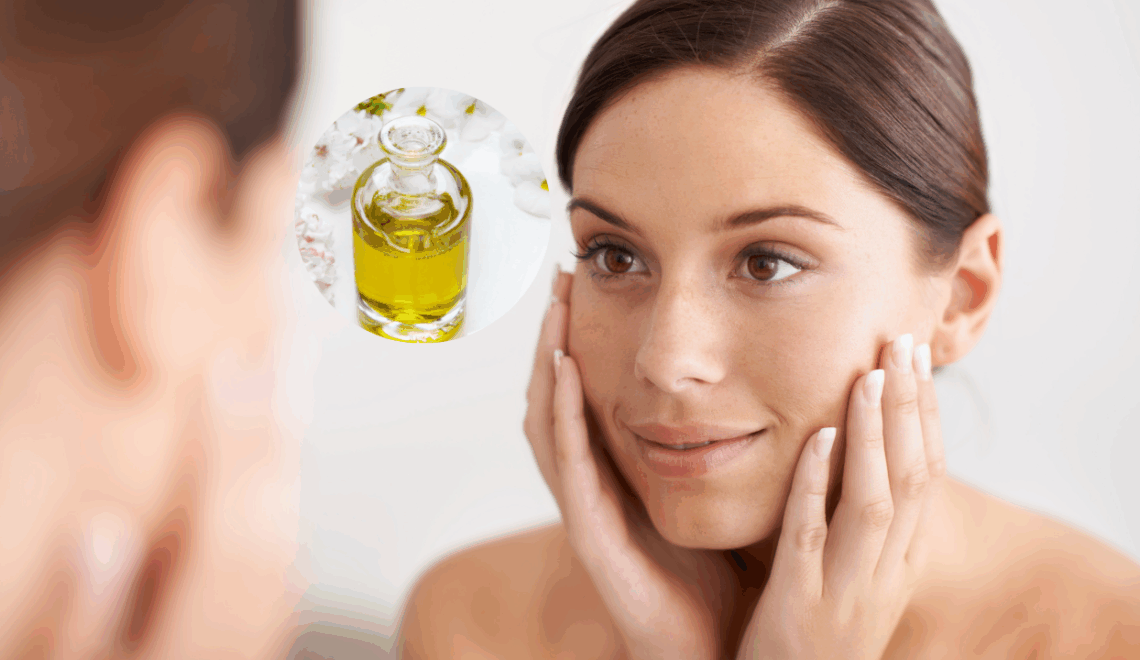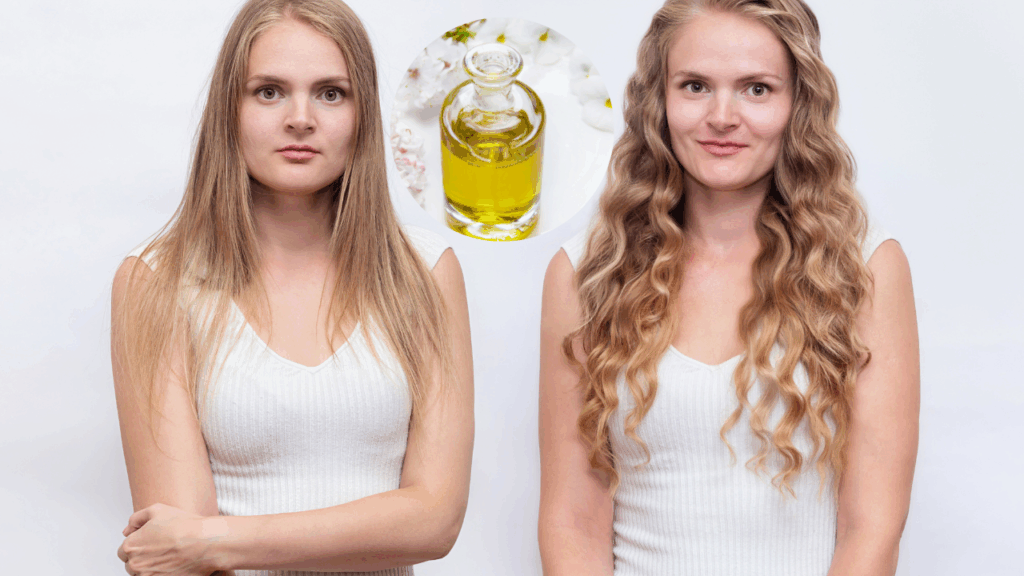Moringa Leaves Oil For beauty and Wellness: A Complete Guide

Moringa Leaves Oil: Nature’s Elixir for Skin, Hair & Health
If you’ve wandered into the world of plant-based remedies or simply sought better ways to nurture your well-being, you might have crossed paths with moringa leaves oil. Prized in different cultures and traditions, this emerald oil stands out for its remarkable health and beauty properties. Extracted from the leaves of the Moringa oleifera tree, moringa oil has long held a prominent place in natural healing, personal care, and even culinary applications.
Moringa trees thrive in arid climates, stretching their slender branches toward the sky in Africa, Asia, and South America. Sometimes called “The Miracle Tree,” every part of moringa has found a purpose in traditional wellness practices, but the oil pressed from its leaves is particularly significant, offering a cornucopia of nutrients, antioxidants, and deeply nourishing fatty acids.
Let’s take a closer look at what puts moringa leaves oil in a unique league and why it keeps gaining ground within scientific, medical, and wellness communities.
The Nutrient Symphony in Every Drop
What truly distinguishes moringa leaves oil is its impressive nutrient density. Highly valued for both topical and dietary uses, moringa oil brings together vitamins, minerals, phytonutrients, and essential fatty acids, all in a lightweight, easily absorbed form.
Key Compounds Present in Moringa Leaves Oil
- Vitamins: Rich in vitamins A, C, and E, moringa oil helps protect skin and hair from free radical damage and supports natural renewal processes.
- Essential Fatty Acids: Includes omega-9 (oleic acid), palmitic acid, and behenic acid, which help maintain the skin’s lipid barrier and promote softness.
- Polyphenols and Flavonoids: These powerful plant antioxidants help soothe irritation, combat oxidative stress, and delay common signs of aging, contributing to its anti-aging benefits.
- Minerals: Contains calcium, iron, potassium, and magnesium—important for tissue health and repair.
| Nutrient | Benefit for Skin | Benefit for Hair | Benefit for Overall Health |
|---|---|---|---|
| Vitamin A | Promotes cell turnover | Strengthens follicles | Immune support |
| Vitamin E | Antioxidant protection | Scalp nourishment | Supports heart health |
| Omega-9 | Hydration and elasticity | Adds shine | Supports cholesterol balance |
| Polyphenols | Calms inflammation | Reduces flakiness | May lower disease risk |
This vibrant cocktail translates to a product that isn’t just therapeutic but also preventive—and that’s why it continues to win over skincare formulators, trichologists, and wellness enthusiasts alike.
A Powerhouse for Skin Radiance
The skin is often our first interface with the world, so it’s no surprise that moringa leaves oil has found wide acclaim as a skin superfood. Its unique chemistry aids in hydration, protection, and restoration, making it suitable for everything from serums to creams and masks.
Why Skin Loves Moringa Oil
- Deep Moisture
Unlike heavier plant oils, moringa oil’s high oleic acid content allows it to penetrate easily without clogging pores. This makes it a gentle ally for both oily and dry complexions. - Antioxidant Armor
With an abundance of vitamin E and polyphenols, moringa oil forms a natural shield against environmental stressors like UV exposure and pollution, reducing visible damage. - Balances and Soothes
Its anti-inflammatory effects can be helpful for those dealing with redness, irritation, or even chronic issues like eczema or rosacea. - Youthful Appearance
By boosting collagen production and supporting skin regeneration, moringa oil helps soften fine lines, improve elasticity, and maintain a plump, radiant look.
How to Apply Moringa Leaves Oil for Skin
- Cleanse Your Skin
Begin with clean, dry skin. Gently wash your face or the area you wish to treat with a mild cleanser and pat dry. - Patch Test
Before first use, apply a small amount of moringa oil to a discreet area (such as the inside of your wrist) and wait 24 hours to ensure there is no allergic reaction. - Dispense the Oil
Place 2–3 drops of moringa leaves oil onto your fingertips. For larger areas, use more as needed. - Warm the Oil
Rub your hands together to warm the oil slightly. This helps with even application and absorption. - Apply Gently
Using gentle, upward strokes, massage the oil into your skin. Focus on dry patches, fine lines, or areas needing extra nourishment. - Allow Absorption
Let the oil absorb naturally for a few minutes before applying other products or makeup. Moringa oil is lightweight and absorbs quickly without leaving a greasy residue. - Use Daily or as Needed
For best results, use moringa oil once or twice daily—morning and/or night. It can be used alone or layered under your regular moisturizer.
Tip:
Moringa leaves oil can also be blended with other natural oils or added to your favorite creams and serums for enhanced benefits.
moringa leaves oil for Hair Care Transformation

Healthy hair roots begin with a nourished scalp. The unique composition of moringa leaves oil provides scalp hydration while balancing oil production. This makes it adept for maintaining clean, healthy follicles and reducing issues like dandruff and itchiness.
Benefits of Moringa Leaves Oil on Hair and Scalp
- Promotes Hair Growth
Moringa leaves oil is rich in vitamins A, E, and zinc, which nourish hair follicles and stimulate healthy hair growth. Its high content of essential amino acids also supports the production of keratin, the protein that strengthens hair strands. - Moisturizes and Conditions
The oil’s emollient properties deeply moisturize the scalp and hair, reducing dryness and flakiness. Regular use leaves hair softer, shinier, and more manageable. - Soothes Scalp Irritation
Moringa oil’s anti-inflammatory and antimicrobial compounds help calm scalp irritation, reduce itching, and may assist in managing dandruff and minor scalp infections. - Strengthens Hair and Reduces Breakage
The abundance of antioxidants and fatty acids in moringa oil helps protect hair from environmental damage, strengthens the hair shaft, and minimizes split ends and breakage. - Balances Scalp Oil Production
Moringa oil helps regulate sebum production, making it beneficial for both dry and oily scalps. It keeps the scalp healthy without clogging pores. - Protects Against Environmental Stressors
The antioxidants in moringa oil shield hair from damage caused by pollution, UV rays, and heat styling, preserving hair’s natural vitality. - Enhances Shine and Smoothness
Regular application of moringa leaves oil imparts a natural shine and smoothness to hair, reducing frizz and leaving hair looking vibrant and healthy.
Tip:
For best results, massage a few drops of moringa leaves oil into your scalp and hair, leave it on for at least 30 minutes or overnight, then wash as usual. Use regularly to experience its full range of benefits.
Ways to Incorporate Moringa Leaves Oil into Your Hair Routine
- Scalp Massage Treatment
Warm a few drops of moringa leaves oil between your palms and gently massage it into your scalp. Leave it on for at least 30 minutes or overnight before washing your hair. This stimulates blood circulation, nourishes hair follicles, and promotes healthy growth. - Pre-Shampoo Conditioning
Apply moringa oil generously to your hair and scalp before shampooing. Let it sit for 20–30 minutes to deeply condition and protect your hair from the drying effects of shampoo. - Leave-In Conditioner
After washing and towel-drying your hair, apply a small amount of moringa oil to the ends and mid-lengths. This helps lock in moisture, detangle, and reduce frizz without weighing hair down. - Split End Treatment
Rub a drop or two of moringa oil between your fingers and apply directly to split ends. This smooths and seals the hair cuticle, reducing the appearance of split ends. - Hair Mask Booster
Add a few drops of moringa oil to your favorite hair mask or deep conditioner. Mix well and apply as usual for enhanced nourishment and shine. - Styling Aid
Use a tiny amount of moringa oil to tame flyaways and add a natural, healthy shine to your finished hairstyle. - Overnight Repair Treatment
For intensive repair, massage moringa oil into your scalp and hair, cover with a shower cap, and leave it on overnight. Wash thoroughly in the morning for softer, revitalized hair.
By incorporating moringa leaves oil into your hair care routine in these ways, you can enjoy stronger, healthier, and more radiant hair.
Supporting Wellness From Within

Beyond beauty, moringa oil plays an influential role in holistic health. Its internal use can offer anti-inflammatory, antimicrobial, and cholesterol-managing benefits, although it’s important to differentiate leaf-based oil from the more widely consumed moringa seed oil in this context.
Internal Health Benefits Attributed to Moringa Oil
- Rich Source of Antioxidants
Moringa oil contains powerful antioxidants such as tocopherols (vitamin E), phytosterols, and phenolic compounds. These help neutralize free radicals in the body, reducing oxidative stress and supporting overall cellular health. - Supports Heart Health
The high content of monounsaturated fatty acids, particularly oleic acid, in moringa oil can help lower bad cholesterol (LDL) and support healthy cholesterol levels. This contributes to improved cardiovascular health and may reduce the risk of heart disease. - Anti-Inflammatory Properties
Moringa oil’s natural anti-inflammatory compounds may help reduce inflammation in the body, which is linked to chronic conditions such as arthritis, metabolic syndrome, and certain autoimmune disorders. - Promotes Healthy Digestion
Consuming food-grade moringa oil in moderation can aid digestion by lubricating the digestive tract and supporting the absorption of fat-soluble vitamins and nutrients. - Supports Immune Function
The oil’s rich nutrient profile—including vitamins A, C, and E, as well as essential minerals—helps strengthen the immune system and protect against infections. - Balances Blood Sugar Levels
Some studies suggest that moringa oil may help regulate blood sugar levels, making it potentially beneficial for individuals with insulin resistance or diabetes. However, more research is needed to confirm these effects in humans. - Promotes Liver Health
Moringa oil’s antioxidant and anti-inflammatory properties may help protect the liver from damage caused by toxins, supporting detoxification and optimal liver function.
Note:
Only food-grade, cold-pressed moringa oil should be consumed internally, and always in moderation. Consult a healthcare professional before adding moringa oil to your diet, especially if you have underlying health conditions or are taking medication.
Moringa Oil vs. Other Botanical Oils
With a growing market of plant-derived oils—think argan, jojoba, and rosehip—what sets moringa leaves oil apart? Each oil carries its own strengths, but moringa’s unique balance makes it a versatile choice.
| Oil Type | Main Benefits | Best For | Texture |
|---|---|---|---|
| Moringa | Antioxidant, hydration | Sensitive, mature | Light, absorbs quickly |
| Argan | Nourishing, shine | Dry, brittle hair | Medium, non-greasy |
| Jojoba | Balancing, soothing | Combo/oily skin | Light, waxy |
| Rosehip | Brightening, healing | Pigmentation issues | Light, absorbs fast |
The lightweight consistency of moringa oil allows it to penetrate deeply without a greasy aftermath, making it suitable for virtually any skin or hair type. Its robust antioxidant load and anti-aging properties give it a unique profile among plant oils for holistic use.
Sourcing and Sustainability
Rising demand prompts questions about ethics and sustainability, especially as more people add exotic botanicals to their routines. Moringa grows rapidly even in drought-prone regions, so it naturally supports smallholder farmers and agroforestry systems.
When looking for quality moringa leaves oil:
- Seek out cold-pressed options to ensure nutrients remain intact.
- Prioritize organic and fair-trade sourcing for the well-being of both the planet and farming communities.
- Check for independent quality testing to avoid adulterated or diluted products.
With its high yield and low input, moringa’s cultivation is often more eco-friendly compared to other oil crops, adding another positive layer to its use.
Moringa Oil I’ve Tried & Recommend for Beauty and Wellness
Over the past few months, I’ve tested several Moringa oils to see which ones actually deliver visible results—for both skincare and overall wellness. Below are the ones I personally used and loved. If you’re looking for natural glow, hydration, or healing properties, these are absolutely worth trying.
Note: I may earn a small commission from Amazon if you buy through the links below, at no extra cost to you. I only recommend products I’ve personally used and believe in.
1. Kate Blanc Cosmetics Moringa Oil – 100% Pure & Cold Pressed
I used this oil daily for my face and hair, and I was amazed at how lightweight yet nourishing it felt. It helped reduce dryness, calmed redness, and gave my skin a natural glow.
Why I love it:
- Absorbs quickly without feeling greasy
- Great for dry skin and split ends
- USDA Organic and cold-pressed
2. True Moringa Facial Oil – Clean Beauty Favorite
This one became my go-to night oil. I tested it for a full month and noticed smoother, firmer skin. It also worked great under makeup during the day.
Why I recommend it:
- Packed with antioxidants
- Safe for sensitive skin
- Ethical brand with fair trade sourcing
3. Moringa Energy Life Oil – Multi-Purpose for Skin & Body
I used this on both my body and scalp. It helped with dry patches, cracked heels, and even as a natural massage oil. If you want something versatile, this is a winner.
Why it stood out for me:
- Light scent and smooth texture
- Perfect for body massages or scalp hydration
- Long-lasting bottle
Everyday Inspiration: Practical Applications
Bringing moringa oil into your daily life doesn’t require elaborate rituals or advanced know-how.
Here are a handful of straightforward uses:
- As a facial serum or mixed with your favorite moisturizer for an antioxidant kick.
- Blended with essential oils for a revitalizing scalp treatment.
- As a soothing balm on elbows, knees, and cracked heels.
- In homemade cuticle creams and lip balms for whipped hydration.
- Added to smoothies (if food-grade) for a daily nutritional lift.
A single bottle can bring benefits to many aspects of life, making it a valuable addition to the natural wellness toolkit.
Whether you reach for moringa oil for glowing skin, stronger hair, or systemic wellness, the virtues of this green elixir shine bright in a growing landscape of health-conscious options. Its affinity with our bodies and the gentle potency of its nutrients continues to appeal to those looking for beauty and vitality, straight from the heart of nature.
Scientific Studies and Evidence on Moringa Leaves Oil
1. Antioxidant and Anti-Inflammatory Properties
A study published in the journal Foods (2021) demonstrated that moringa oil is rich in antioxidants such as tocopherols, flavonoids, and phenolic acids. These compounds help neutralize free radicals, reducing oxidative stress and inflammation in skin cells. The study concluded that moringa oil could be a valuable ingredient in skincare products for its protective effects against environmental stressors and aging.
2. Skin Barrier Repair and Moisturization
Research published in the Journal of Ethnopharmacology (2014) found that topical application of moringa oil improved skin hydration and barrier function. The oil’s high content of oleic acid and behenic acid allows it to penetrate deeply, providing lasting moisturization and supporting the skin’s natural repair processes.
3. Antimicrobial Activity
A study in Phytotherapy Research (201) evaluated the antimicrobial effects of moringa oil against various bacteria and fungi. The results showed significant inhibitory activity, suggesting moringa oil can help protect the skin from infections and support wound healing.
4. Hair Health and Scalp Care
A clinical review in the International Journal of Trichology (2018) highlighted moringa oil’s benefits for hair and scalp health. The oil’s rich nutrient profile, including vitamins A, E, and zinc, supports hair growth, reduces dandruff, and soothes scalp irritation.
Precautions and Side Effects of Moringa Leaves Oil
While moringa leaves oil is generally considered safe for topical and culinary use, it is important to be aware of potential precautions and side effects to ensure safe and effective use:
1. Skin Sensitivity and Allergic Reactions
- Some individuals may experience allergic reactions such as redness, itching, or rash when applying moringa oil to the skin.
- Before widespread use, perform a patch test by applying a small amount of oil to a discreet area of skin and wait 24 hours to check for any adverse reactions.
2. Ingestion Safety
- Moringa oil intended for cosmetic use should not be ingested, as it may contain additives or impurities not suitable for consumption.
- Only use food-grade, cold-pressed moringa oil for culinary purposes, and always follow recommended serving sizes.
3. Pregnancy and Breastfeeding
- There is limited research on the safety of moringa oil during pregnancy and breastfeeding. Consult a healthcare provider before using moringa oil if you are pregnant or nursing.
4. Interaction with Medications
- Although rare, moringa oil may interact with certain medications, especially those affecting blood pressure or blood sugar levels. If you are on medication, consult your doctor before using moringa oil regularly.
5. Pre-existing Skin Conditions
- Individuals with sensitive skin or chronic skin conditions such as eczema or psoriasis should consult a dermatologist before incorporating moringa oil into their routine.
6. Storage and Shelf Life
Summary:
Moringa leaves oil is safe for most people when used appropriately, but always perform a patch test, use the correct grade for your intended purpose, and consult a healthcare professional if you have underlying health conditions or are pregnant or breastfeeding. Proper storage is essential to maintain the oil’s quality and safety.
